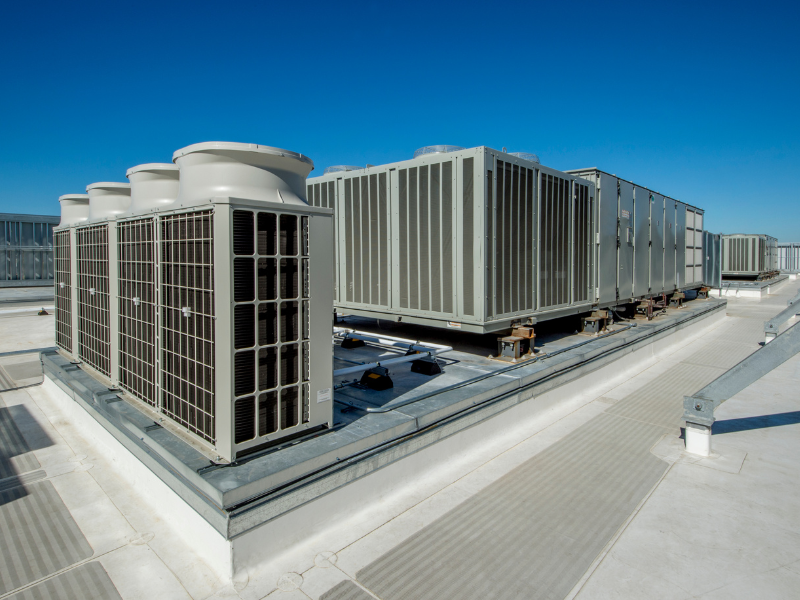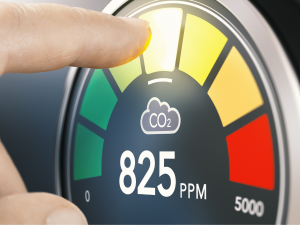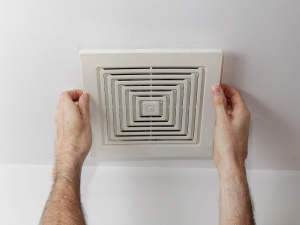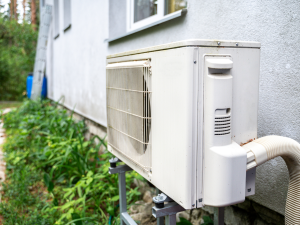Spring is here, and it’s the perfect time to think about your HVAC system.
With the warmer weather ahead, you want to make sure your system is running efficiently and effectively. In this guide, we will discuss ten spring HVAC maintenance tips to keep your system in tip-top shape.
This article highlights how valuable spring maintenance is, offers a checklist, and provides ten useful HVAC tips that you can use during the spring.
10 Reliable Spring HVAC Maintenance Tips From Our Experts
As the weather gets warmer and the days get longer, it’s important to ensure that your HVAC system is ready for the spring and summer months ahead.
Spring maintenance and HVAC go hand-in-hand; the process can help improve the efficiency of your system, prolong its lifespan, and prevent breakdowns.
This section covers ten HVAC tips that can help keep your system running smoothly this spring. These include simple tasks that you can do yourself to more involved tasks that require professional help. Whether you’re a homeowner or a renter, this is your one-stop solution for learning how you can prepare your HVAC system for the upcoming season.
- Air filter replacement: This is a simple task that you can do yourself. The air filter traps dust, pollen, and other particles from entering your HVAC system. A dirty air filter can cause your system to overwork itself, leading to increased energy bills and potential damage to your system. It’s recommended to replace the air filter every one to three months, depending on the level of usage.
- Air duct cleaning: Dust, debris, and allergens can build up in your air ducts, which can reduce the efficiency of your system and impact indoor air quality. A professional HVAC technician can use specialized tools to clean out your air ducts, removing any accumulated debris and improving airflow.
- Thermostat calibration: Make sure your thermostat is calibrated properly and set to a comfortable temperature. Setting your thermostat too high or too low can cause your system to work too hard, which can result in increased energy bills.
- Outdoor unit inspection: Check your outdoor unit for any damage or wear and tear. Remove any debris that may have accumulated around the unit, as this can impede airflow and reduce efficiency.
- Condenser coil cleaning: A dirty condenser coil can also reduce efficiency. You can clean the coil yourself by using a gentle stream of water to remove any dirt or debris that may have accumulated.
- Refrigerant level check: Not having enough refrigerant levels can force your system to work harder than necessary, leading to higher energy bills and potential damage to your system. It’s best to have a professional HVAC technician check and refill your refrigerant levels as needed.
- Lubrication of moving parts: Parts that aren’t lubricated can cause friction and wear out faster, leading to costly repairs. You can use a light oil to lubricate any moving parts and keep your system running smoothly.
- Electrical connection inspection: Loose or damaged wires can be dangerous and cause system failure. Check all electrical connections and make sure they are secure and in good condition.
- Safety control testing: One of the final HVAC Tips for spring is testing your safety controls. Safety features like high-pressure switches and safety switches protect you and your home from potential hazards. A professional HVAC technician can test these features and ensure that they are working properly.
- Professional maintenance service: Scheduling a professional maintenance service is the best way to ensure that your HVAC system is in good working order. A professional can inspect your system more thoroughly than you can on your own and identify any potential issues before they become major problems.
HVAC Spring Maintenance | Why It Matters
Why is HVAC maintenance so important in the spring? Regular maintenance can help prevent breakdowns and prolong the life of your system. It can also improve indoor air quality, increase energy efficiency, and save you money on your utility bills. Failing to complete maintenance can result in expensive repairs and even your whole system failing. It also leaves homeowners vulnerable to insurance issues.
The good news? Springtime HVAC maintenance is the way to fix your HVAC needs.
Fun Fact From the Experts
Did you know that regularly changing your air filter can not only improve the air quality in your home but also help you save some of your hard-earned money? According to the U.S. Department of Energy, replacing a dusty air filter with a new one can significantly reduce your HVAC system’s energy consumption. Studies show an impressive difference of five to 15%. So, don’t forget to check and replace your air filter regularly to keep your system running efficiently and your energy bills lower.
The Ultimate Spring HVAC Maintenance Checklist
Now that we’ve covered why it’s important, let’s delve into the list of chores so you can divvy up the DIY and the tasks that require a professional.
Here’s a checklist of ten HVAC spring maintenance tasks to tackle:
- Changing the air filter: A dirty air filter can reduce airflow and potentially damage your system. Change it every one to three months.
- Cleaning the air ducts: Dust and debris can accumulate in your ductwork, reducing efficiency and indoor air quality. Hire a professional to clean them every three to five years.
- Checking the thermostat: Make sure it’s calibrated and set to the right temperature.
- Inspect the outdoor unit: Remove any debris and check for damage or wear and tear.
- Cleaning the condenser coil: Dirt and debris can build up on the coil, reducing efficiency. Cleaning it with a gentle stream of water.
- Checking the refrigerant levels: Low refrigerant levels can cause your system to work harder than needed. Have a professional check and refill if necessary.
- Lubricating moving parts: Parts that aren’t lubricated can cause friction and wear out faster. Use a light oil to lubricate moving parts.
- Inspecting electrical connections: Loose connections can be dangerous and cause system failure. Check for any loose or damaged wires.
- Testing safety controls: Make sure safety features like high-pressure switches and safety switches are working properly.
- Scheduling a professional maintenance service: A professional can inspect your system more thoroughly and identify any potential issues.
10 Spring HVAC Maintenance Tips — Final Notes
So there you have it — ten spring HVAC tips to help you maintain your units. Remember, regular maintenance can prevent breakdowns, improve indoor air quality, increase energy efficiency and save you money on your utility bills.
While some tasks can be done by the homeowner, it’s important to leave certain tasks to the professionals to ensure that your system is safe and functioning properly. It’s always the right time for preventative upkeep. Schedule your spring maintenance service with Clover today and enjoy peace of mind knowing that your HVAC system is in good hands.




